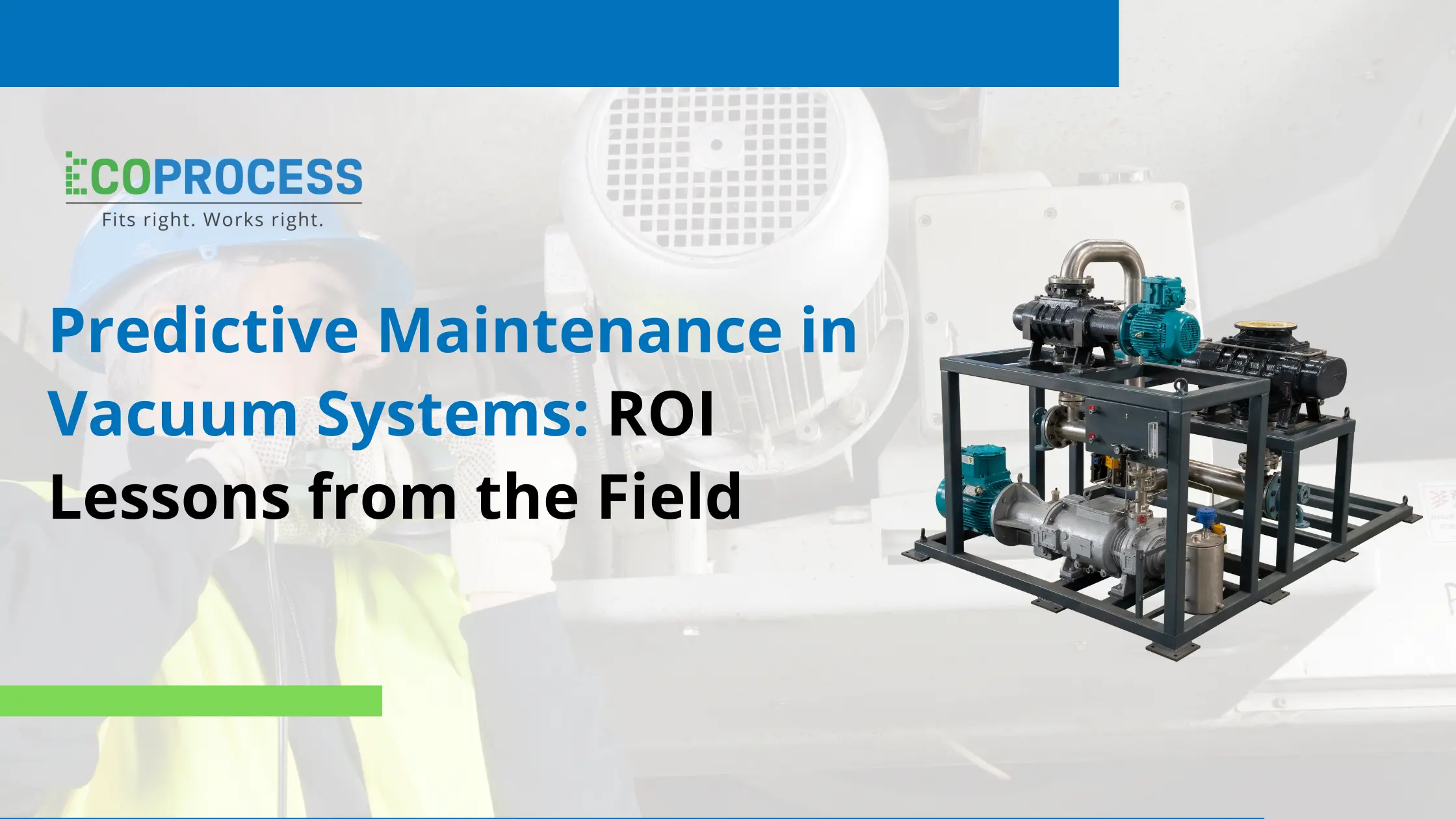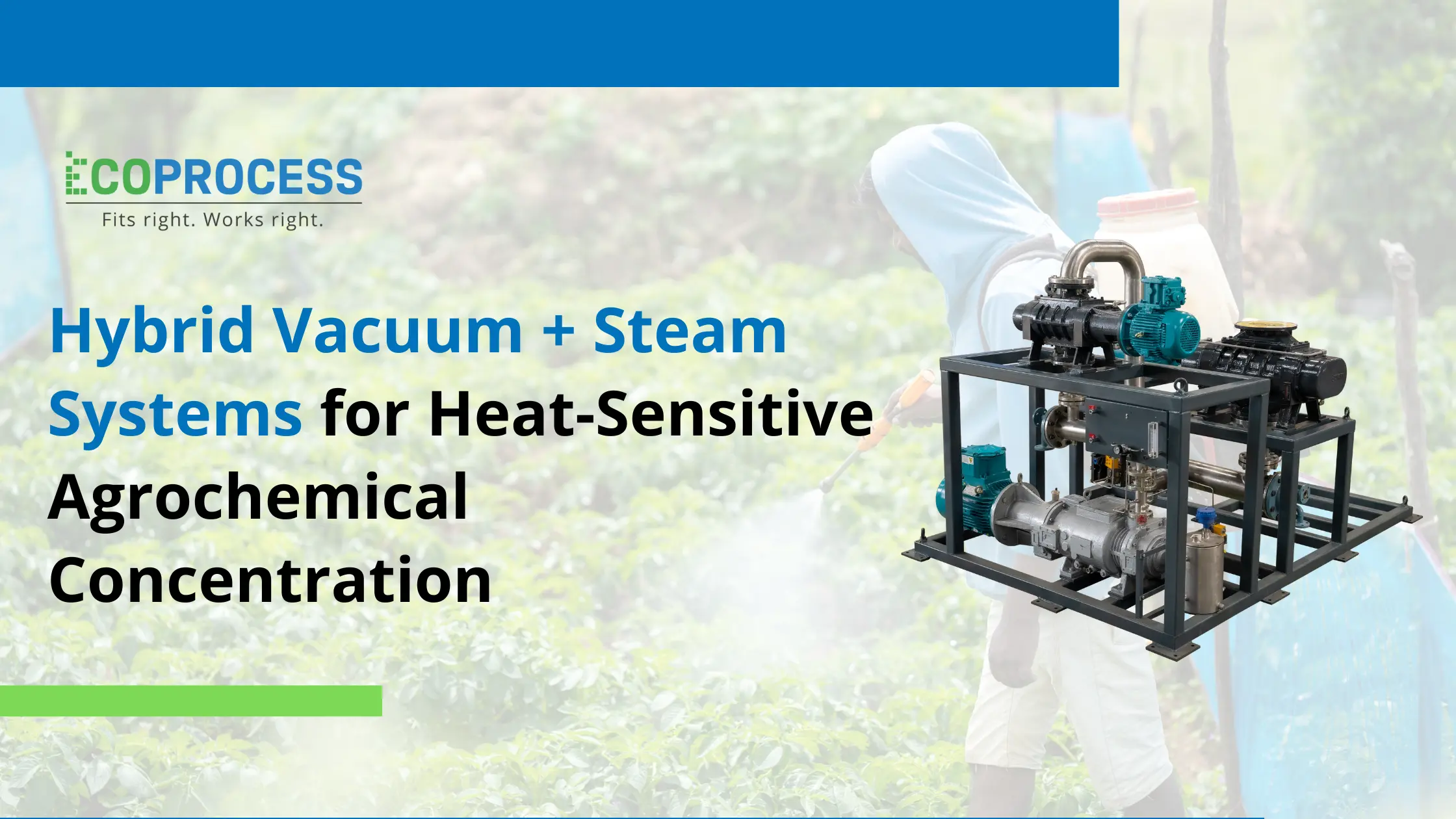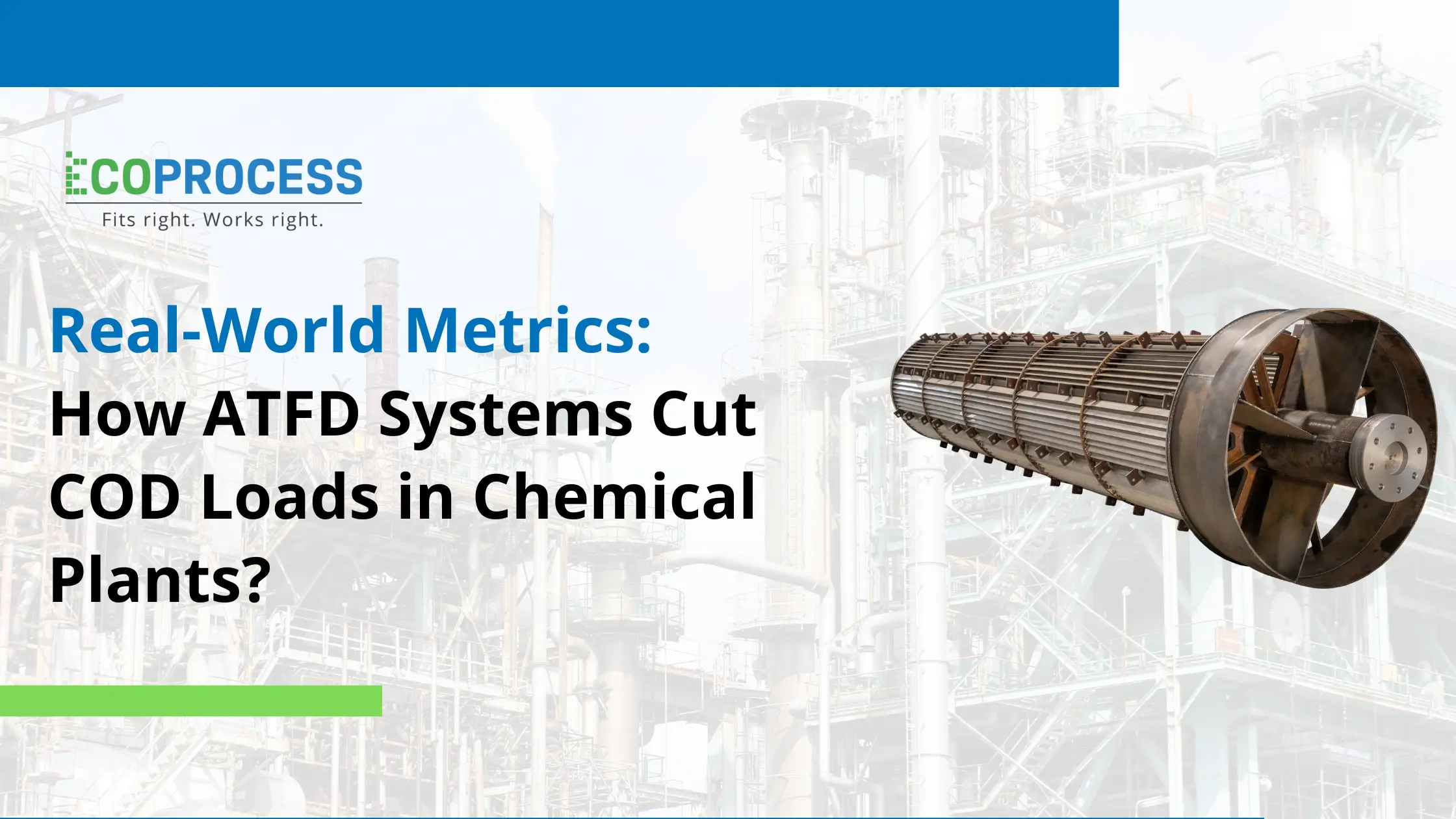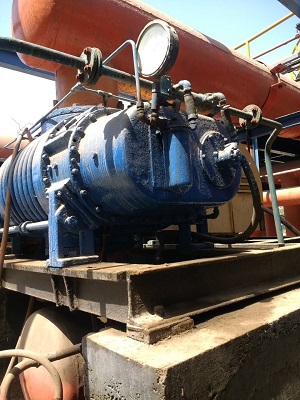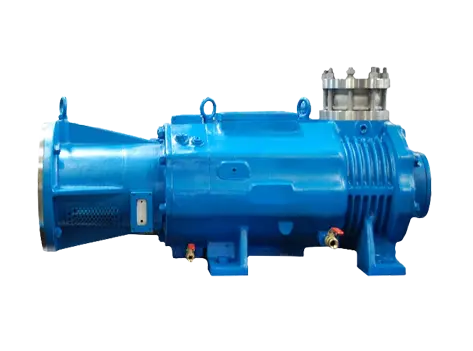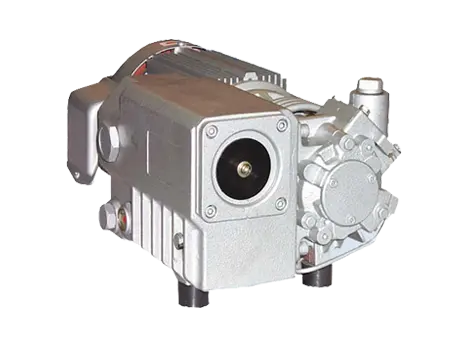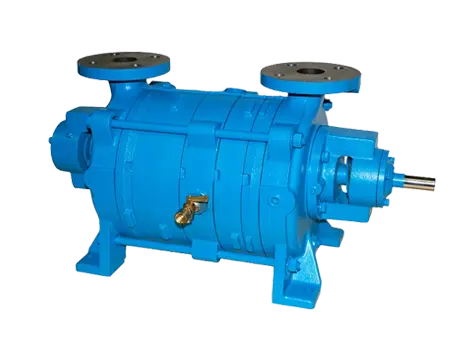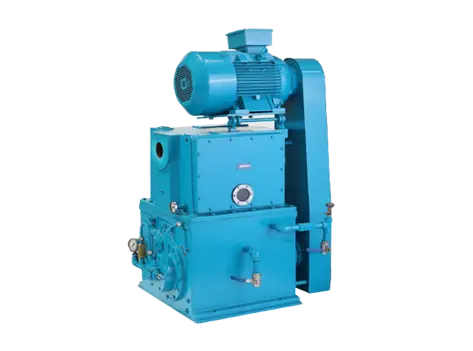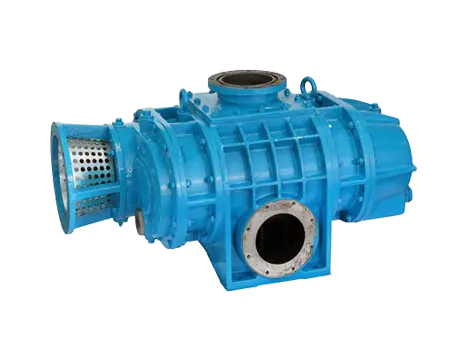
Using Vacuum Boosters to Improve Drying Efficiency in Pharma
Pharmaceutical products rely upon drying to preserve their excessive quality, long-term balance and shelf life. Control over moisture is important for both APIs, excipients and the finished formulations. Conventional drying processes are usually very slow, using a lot of energy, and may not always produce good, consistent products. This is when a vacuum booster pump is needed.
Vacuum booster pumps increase the speed at which vacuum systems evacuate, which lowers the ultimate pressure achieved. They bring greater efficiency to vacuum drying for pharmaceuticals by allowing faster results, better quality temperature control, and the use of less energy. We will look at how vacuum boosters operate, how they affect drying in the pharmaceutical industry, places where they are used and tips on selecting one for your needs.
Booster Pump Tech
A Root blower or Root pump, which is another name for a vacuum booster, helps increase the vacuum achieved by the main pump, usually a rotary vane or liquid ring model. Because it does not touch either the process gas or vapours, it is suitable for delicate pharmaceutical processes.
Mechanical booster pumps are recognized by the following main features:
-
Water is pumped quickly at low-pressure
-
In many models, it can be operated without needing oil
-
Compatible with many levels of vacuum pressure
-
Using energy-efficient design together with frequency converters or variable drives
With a booster pump added to the existing vacuum system, pharmaceutical companies can diminish the time needed to achieve a stronger vacuum for vacuum drying in pharmaceuticals.
Drying Processes in Pharmaceuticals
In the pharmaceutical industry, drying usually means getting rid of solvents or moisture as the temperature and pressure are managed. Methods that are popular are:
-
Vacuum Tray Dryers (VTD)
-
Rotary Cone Vacuum Dryers are also known as RCVD’s
-
Lyophilization
-
This drying method involves flowable materials.
Drying in a drying technology makes it possible to use cooler temperatures, saving the structure of sensitive substances. But if we don’t have boosters, it can be hard and laborious to get the pressures we require.
Problems that arise without booster pumps:
-
Drying your clothes for a longer period
-
Operating at hotter temperatures
-
A rise in electricity prices
-
The possibility that the compound will break apart due to heat
Drying that is not consistent, mainly with hygroscopic materials
When a vacuum booster pump is added, the drying chamber will reach optimal vacuum faster and better maintain it, which improves the quality and performance of the product.
Real Use Cases
Let’s study how vacuum booster systems have changed the way drying happens in pharmaceutical plants:
-
API Manufacturing
A company manufacturing sensitive APIs at high temperatures was stuck with lengthy drying periods and sometimes spoiled products. Once they started using a Roots-type pump in their rotary cone dryer chamber, they saw drying time decreased by 40%, less solvent left on products, higher quality output and increased production.
2. Preparing Herbal Extracts
Liquid from herbal extracts with high moisture was evaporated for long periods in vacuum tray dryers. With a booster pump added to the rotary vane pump, the system created a very deep vacuum more quickly. This decreased drying time and also saved energy.
3. How biotech labs use lyophilization.
It is very important for lyophilization that both stability and pressure are consistent throughout the process. The addition of booster pumps allowed fast target pressure and reduced batch variation, which is necessary for biopharmaceuticals and vaccines.
From these examples, it is clear that vacuum boosters help vaccine drying be quicker, give more product output and require less energy.
Choosing the Right System
Before you select a vacuum booster system, you need to consider both your process needs and any existing setup for it. Having these things in mind will help you decide:
-
Process Compatibility
Be certain the booster pump matches the type of gas, vapour, and solvents in use. Pharma applications are best served by filtration media that do not rust or get contaminated.
-
Pumping Speed and Pressure Range
Select a pump that matches the drying equipment's pumping speed and pressure range trend. A prime operating area for booster pumps is between 0.1 and 10 mbar pressure.
-
Energy Efficiency
Actions of drives and sensors that can adjust the motors to use only the needed amount of power are commonly found in inefficient control systems.
-
Fitting into What is Already in Place
Your booster should be able to connect with your vacuum without major modifications. Today, many new boosters are modular and can be quickly set up by plugging them in.
-
Function and use opportunities
Go for pumps that are easy to service and don’t need much attention, as this will save you time due to unexpected stopping.
-
Meeting the Standards and Cleanroom Effectiveness
Illustrate that the system follows cGMP rules and is appropriate for use in cleanrooms, mainly for generating final products or sterile medicines.
-
Ways of Managing and Cooling Systems
Heat is produced by vacuum booster pumps as they operate and most of this heat appears at high engine speeds. Selecting a system that includes effective cooling will keep it performing well and stop it from becoming overheated, which can be a problem in dryers that work continuously.
-
How much noise and vibration a vehicle makes
When pharmaceutical equipment works near lab or cleanroom areas, quietness and stable vibration are extremely important. Choose a booster pump that has a design or special handling features so it won’t create much noise and GMP regulations are still achieved.
-
The ability to automate and monitor using machines
Nowadays, booster pumps are often set up to work with IoT, can be watched remotely and are compatible with automation systems. If the system connects with SCADA or PLCs, it can control the process better, alert you to problems earlier and predict future maintenance which all help maintain unbroken drying.
-
Assistance after buying and the availability of spare parts
Go for a vendor who offers good support after you purchase, provides expert technical help nearby and can give you access to spare parts easily. This approach means that problems are solved efficiently and time lost from maintenance or fixes is minimal.
Conclusion
Since the pharma industry needs to do more with less, vacuum booster pumps help achieve improved efficiency and accurate results. If pharmaceutical companies learn about available technologies, review real use cases, and carefully assess system specs, they can earn advantages for their operations over the long term.
Digital controls and vacuum booster pumps not only improve your process but also ensure the high quality, efficiency, and green production of your product line
FAQs
-
What does a vacuum booster do?
When paired with a principal vacuum pump, a vacuum booster enhances how quickly and how low vacuum levels can be reached.
-
How does it improve the drying process?
A vacuum booster speeds up drying by fast-reaching a deep vacuum, reduces the time required, cuts down energy costs and protects medicines that may be damaged by extreme heat.
-
What makes it necessary for pharma products to be dried?
Suitable drying keeps products stable, prevents spoilage by microbes, extends their period of use and preserves their active ingredients. Ensuring the safety, high quality and effectiveness of medicines depends on it.
-
Which boosters work the best for pharma companies?
Oil-free Roots-type vacuum boosters are perfect for pharmaceuticals since they operate cleanly, can handle many solvents, create deep vacuum and are appropriate for GMP-compliant areas with little chance of contamination.
